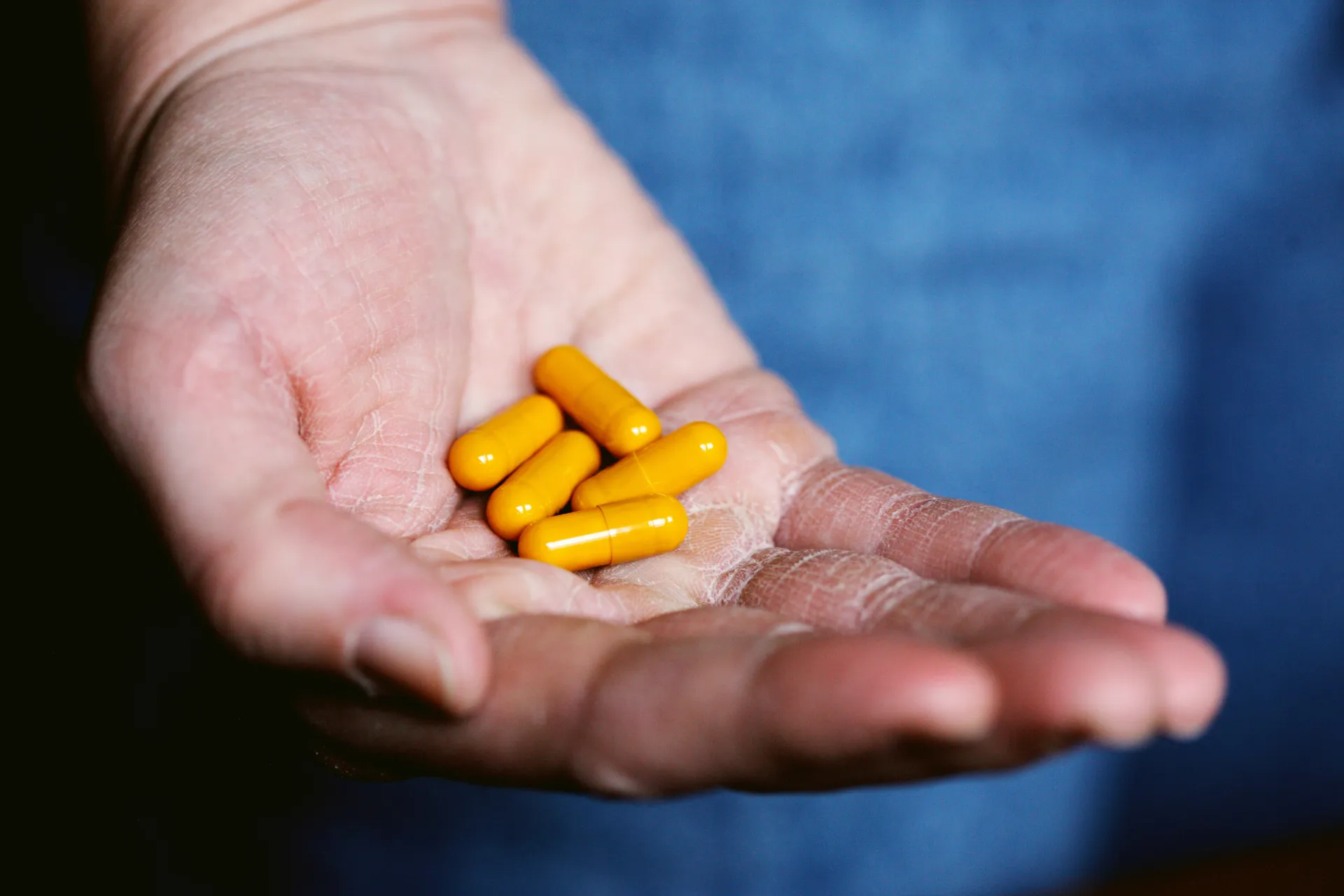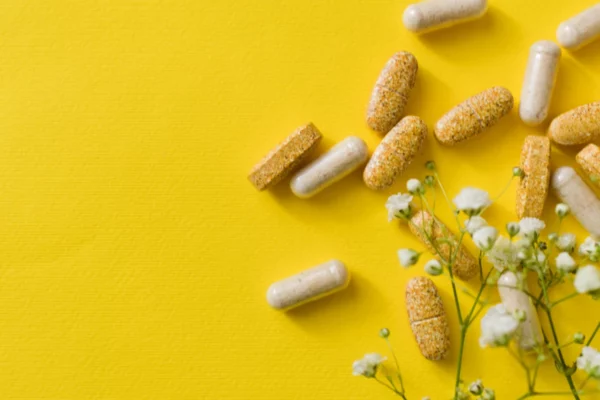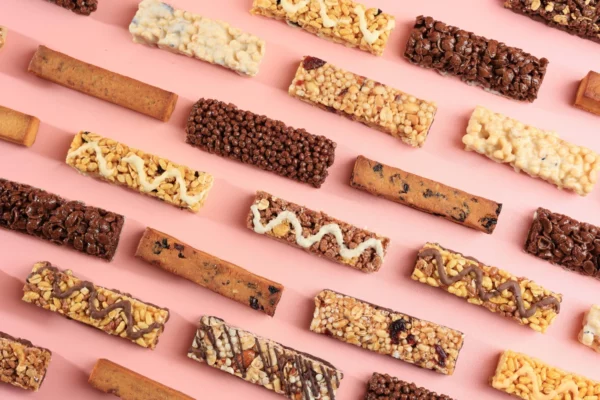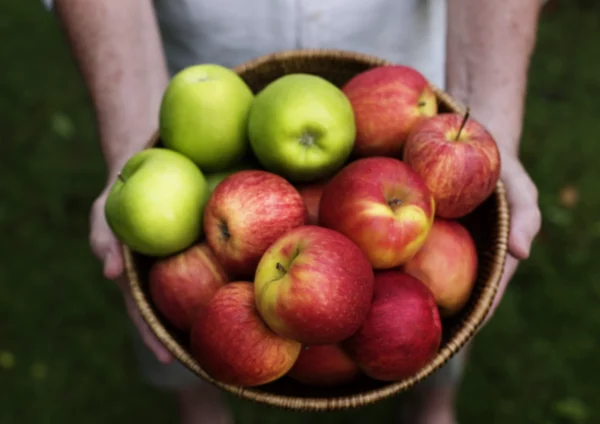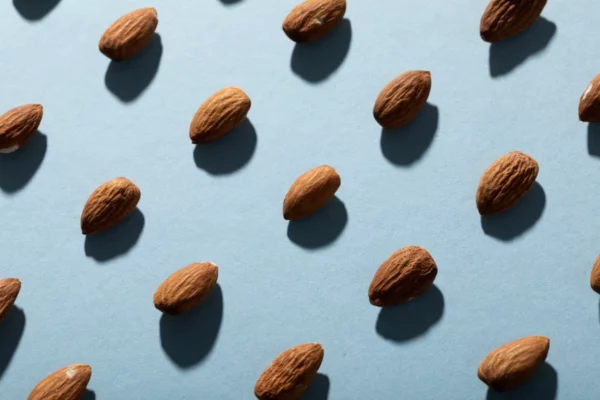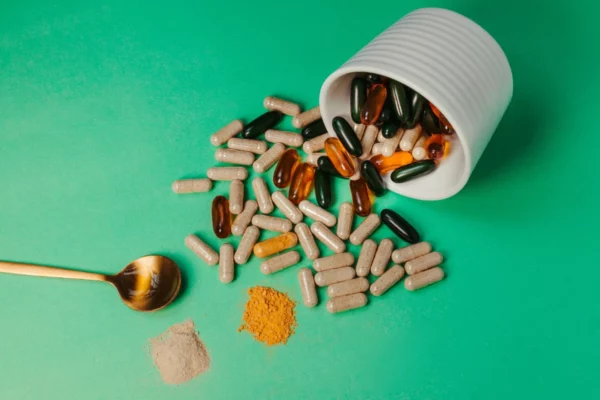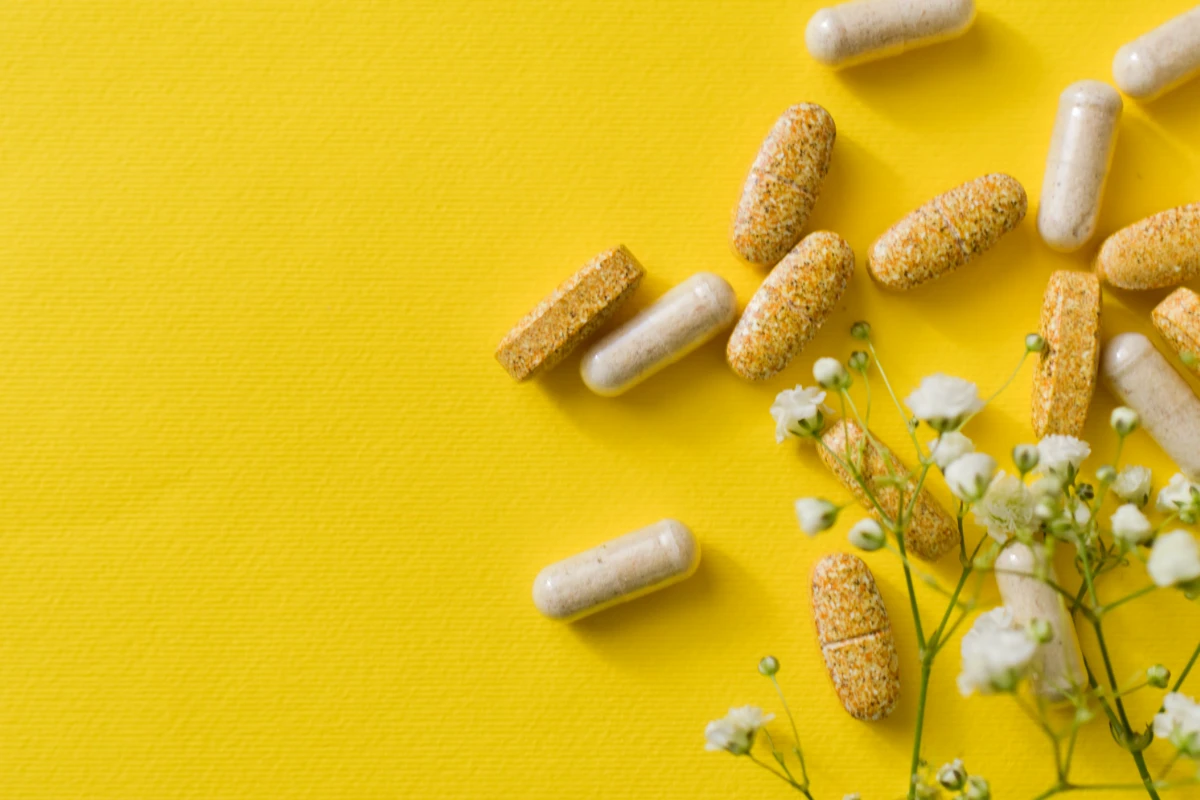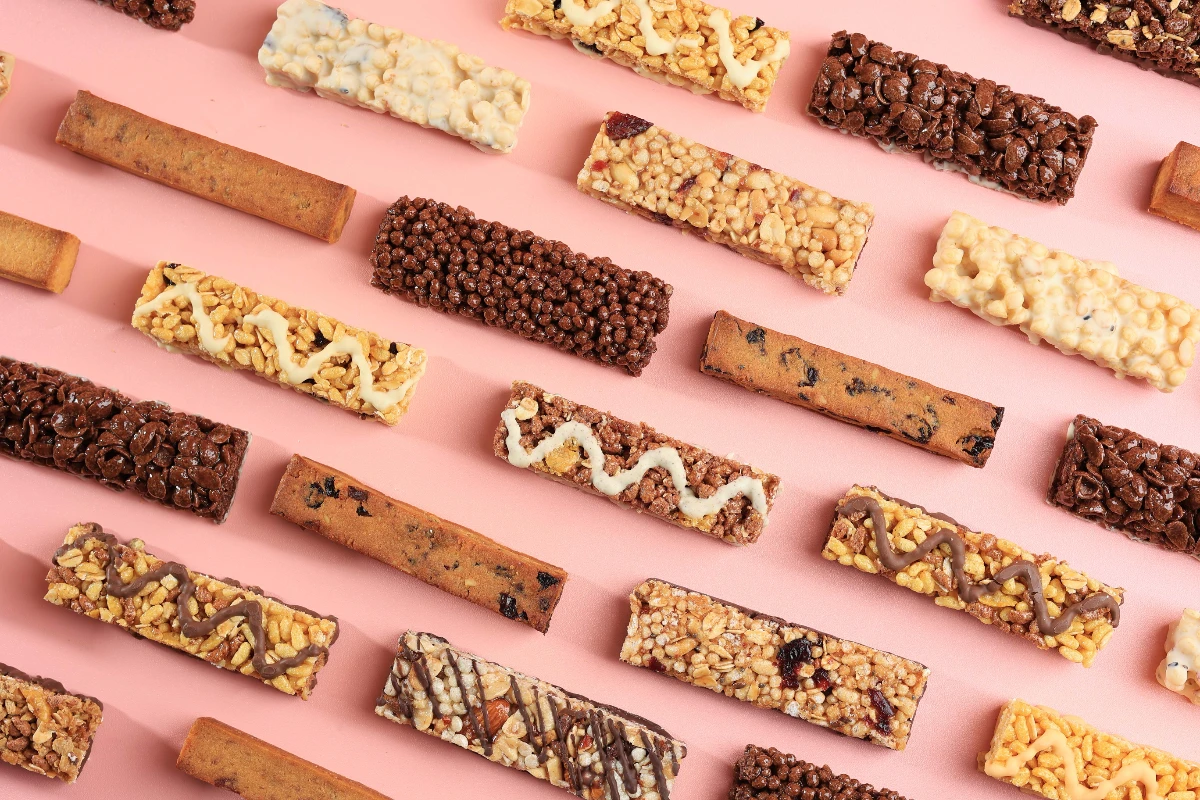What is fiber?
The results are in, and it’s clear that fiber supplementation is the cornerstone of excellent health. Dietary fiber is the part of plant-based food that mostly passes through your digestive system without breaking down or being digested. There are two basic types of fiber: soluble and insoluble fiber.
Soluble fiber dissolves in water, and includes plant pectin and gums. Insoluble fiber doesn’t dissolve in water. It includes plant cellulose and hemicellulose.
Most plants contain both soluble and insoluble fiber, but in different amounts. Fiber is an important part of a healthy diet and supports many different body systems.
Read on to learn more about how to chose the best plant based fiber supplemnts.
What is the recommended amount of daily fiber?
Dietary fiber is widely recognized to have beneficial effects on health when consumed at recommended levels (25 g/d for adult women, 38 g/d for adult men). However, most (90%) of the US population does not consume enough fiber, averaging only 15 grams of fiber per day. Increasing your fiber intake though the use of a dietary supplement can help you increase your daily intake of fiber and ensure you are getting an adequate amount of fiber in your diet.
Epidemiologic studies show that a diet high in fiber from whole foods is strongly associated with a reduced risk of heart disease, stroke, and cardiovascular disease. A diet high in fiber may also help with weight loss, maintain healthy blood sugar levels and improve your digestive health.
Fiber Replacement vs. Fiber Supplement
When looking at studies showing improved health with fiber, an important distinction is a difference between replacement and supplement. Suppose patients comply with the advice to change their eating habits, and high-fiber foods replace a substantial portion of a given diet. In that case, the total calories consumed and the glycemic index of the diet should be significantly reduced. The resulting health benefits would support an association between consuming a wide variety of fiber types from whole food sources (e.g., fruits, vegetables, legumes, whole grains) and observed improvements in health.
It remains unclear, however, how much of the observed health benefit is attributable to the increase in dietary fiber versus how much is attributable to a reduction in calories, elimination of less healthy dietary components, and increased consumption of health-promoting constituents of the fruits, vegetables, and whole grains that are independent of the fiber component.
For optimal health outcomes, fiber supplements should not replace the fiber missing from a bad diet but instead supplement a diet already meeting the minimum requirements. The term fiber supplement implies that regular (daily) consumption will provide health benefits that may be missing from a low-fiber diet. Still, for most fiber supplements, this implication is not supported by clinical data. Health benefits derived from fiber supplements are primarily a function of the fiber’s physical effects in the small bowel (e.g., cholesterol-lowering, improved glycemic control, satiety/weight loss) and large bowel (improved stool form and reduced symptoms in constipation, diarrhea, and irritable bowel syndrome [IBS]). There are different types of fiber, and a single fiber supplement will not replace the variety of fiber that comes from a variety of foods.
Four Clinically Meaningful types of Fiber Supplements
There are 4 main characteristics of fiber supplements that promote clinical efficacy:
- Solubility, whether a fiber supplement will dissolve in water (soluble) or remain as discreet insoluble particles
- degree/rate of fermentation refers to the rate and degree to which a dietary fiber, after resisting enzymatic digestion in the small bowel, can be degraded by gut bacteria, producing fermentation byproducts such as short-chain fatty acids and gas
- viscosity refers to the ability of some fibers to “thicken” when hydrated
- in a concentration-dependent manner
- gel formation, the ability of a subset of soluble viscous fibers to form cross-links, resulting in a viscoelastic gel when hydrated
Most fibers are not exclusively soluble or insoluble, the predominant characteristic is used as the main classification. eg, a fiber that is 70% soluble will be considered a soluble fiber).
Using the 4 fiber characteristics described above, fiber supplements can be divided into 4 clinically meaningful categories:
Insoluble, poorly fermented fibers
There are not may type of insoluble, poorly fermented fibers. The most common in this group is wheat bran. Insoluble fiber does not dissolve in water (no water-holding capacity) and poorly fermented means its not broken down by the microbiome. This group of fibers can exert a laxative effect by mechanical irritation/stimulation of gut mucosa if particles are sufficiently large and coarse (“plastic effect”). Small smooth particles (eg, wheat bran flour/bread) have no significant laxative effect. Also because insoluble fiber does not gel or alter viscosity and thus does not provide other (gel-dependent) fiber health benefits.
The insoluble fiber that makes up most of wheat bran’s volume is cellulose, a carbohydrate consisting of very large, tough molecules. As it passes undigested through your system it absorbs just enough moisture to form a soft, bulky mass that aids stool formation. The insoluble fiber in wheat bran is more effective at preventing constipation
Soluble, nonviscous, readily fermented fibers
The most common soluble, nonviscous readily fermented fibers include inulin, wheat dextrin, oligosaccharides and resistant starches. These fibers dissolve in water; provide no increase in viscosity; rapidly and completely fermented (once fermented, the fiber is no longer present in stool, rapid gas formation, increased flatulence, energy harvest [calorie uptake] from fermentation by-products); may alter the numbers of specific bacteria in the gut (eg, “prebiotic” effect); no laxative effect at physiologic doses; does not gel or alter viscosity and thus does not provide any of the gel-dependent fiber health benefits.
Readily fermented fibers are part of an emerging area of science relating to their effects on the gut microbiome, but to date, the marketed fiber supplements have no established clinically meaningful health benefits.
Inulin powder is easily found online and is marketed as a prebiotic fiber. Inulin is also fructan. Like other fructans, it is a prebiotic, meaning that it feeds the good bacteria in the gut.
Fructans are chains of fructose molecules. The molecules link together in a way that the small intestine cannot break down. Instead, they travel to the lower gut, where they feed beneficial gut bacteria.
The gut bacteria convert inulin and other prebiotics into short-chain fatty acids, which nourish colon cells and provide various other health benefits
Plants containing inulin have been around for thousands of years, and some early humans consumed much more inulin than we do today
Manufacturers add inulin to processed products to
- boost the prebiotic content of foods
- replace fat in foods
- replace sugar in foods
- alter the texture of foods
- improve the health benefits of foods due to its benefits for gut health
The best Innulin containing supplements include:
Soluble viscous/gel forming, readily fermented fibers
The most common types of soluble viscous/gel formning readily fermented fibers are β-glucan [oats, barley] and raw guar gum. This type of fiber dissolves in water, forms a viscous gel (eg, oatmeal), increases chyme viscosity to slow nutrient absorption and improve glycemic control. It also lowers elevated serum cholesterol through capture of bile salts. readily fermented (gas formation, energy harvest [calorie uptake] from fermentation by-products), fermentation results in loss of gel and water-holding capacity, and thus, no significant laxative effect and no retained gel to attenuate diarrhea.
The best known guar gum supplement is Sunfiber, also known as Partially Hydrolyzed Guar Gum (PHGG) or Guar Fiber, is a galactomannan based soluble dietary fiber made from guar beans. It is a versatile powder that can be easily added to a wide variety of foods, beverages and supplements.
You can also find Beta glucan supplements as a powder or pill form.
Soluble viscous/gel forming, nonfermented fibers
Soluble viscous/gleforming but nonfermented fibers are a type of fiber that dissolves in water and it forms a viscous gel. Other benefits increases chyme viscosity to slow nutrient absorption and improve glycemic control, lowers elevated serum cholesterol; The most commonly used fiber in this group is psyllium. Psylium is not fermented (no gas production); because it is not fermented, it remains gelled throughout the large bowel, providing a dichotomous “stool-normalizing” effect. This means psyllium fiber supplements soften hard stool in constipation (relieves/prevents constipation) and firms/forms loose/liquid stool in diarrhea (relieves/prevents diarrhea), and normalizes stool form in IBS.
Plant-based fiber powders offer a convenient and effective way to increase your daily fiber intake. In this blog post, we will explore the best plant-based fiber powders and how they can benefit your health.
Psyllium husk – or psyllium fiber – is a water-loving substance within it is the outer layer of the psyllium seeds from the psyllium plant, Plantago ovata, and is considered a valuable source of fiber. It is made of what is referred to as mucilage and is obtained through mechanical milling or grinding to remove the seed’s outer layer, where the fiber is highly concentrated. This psyllium fiber is a non-digestible carbohydrate that can provide several health-related benefits.
Psyllium fiber supplement include:
- Metamucil is the best selling psyliium supplement on Amazon and comes in powders, thins and capsules
- If you are looking for an orgainic Psylium supplement the second most common selling is Viva Naturals Organic
Psyllium Husk Powder:
Psyllium husk is a soluble fiber derived from the seeds of the Plantago ovata plant. It is a popular fiber supplement that can help with constipation, diarrhea, and other digestive issues. Psyllium husk powder is often sold in bulk and can be added to water or smoothies. Psyllium husk powder is also an excellent source of prebiotic fiber, which can help to nourish the healthy bacteria in your gut.
In addition to its digestive benefits, psyllium husk powder has been shown to have a positive impact on heart health. Studies have found that psyllium husk can help to lower cholesterol levels and reduce the risk of heart disease. Psyllium husk powder is also a natural appetite suppressant, which can help to support weight loss efforts.
Flaxseed Meal:
Flaxseed meal is a good source of both soluble and insoluble fiber, as well as omega-3 fatty acids. It can be added to smoothies, oatmeal, or baked goods for a boost of fiber. Flaxseed meal is also an excellent source of lignans, a type of phytoestrogen that has been shown to have anti-cancer properties.
Flaxseed meal has also been shown to have a positive impact on heart health. Studies have found that consuming flaxseed can help to lower blood pressure, reduce inflammation, and improve cholesterol levels. Flaxseed meal can also help to regulate blood sugar levels, making it a beneficial supplement for individuals with diabetes.
Chia Seed Powder:
Chia seeds are a good source of fiber, protein, and omega-3 fatty acids. Chia seed powder can be used as a thickening agent in smoothies or mixed with water to create a gel-like substance. Chia seeds are also an excellent source of antioxidants, which can help to protect against cellular damage and reduce the risk of chronic diseases.
In addition to its antioxidant properties, chia seed powder has been shown to have a positive impact on heart health. Studies have found that consuming chia seeds can help to lower blood pressure, reduce inflammation, and improve cholesterol levels. Chia seed powder can also help to regulate blood sugar levels, making it a beneficial supplement for individuals with diabetes.
Acacia Fiber Powder:
Acacia fiber is a soluble fiber derived from the sap of the Acacia tree. It is a gentle fiber supplement that can help with constipation and other digestive issues. Acacia fiber powder can be added to water or smoothies. Acacia fiber is also a prebiotic fiber, which can help to nourish the healthy bacteria in your gut.
Acacia fiber powder has also been shown to have a positive impact on weight loss. Studies have found that acacia fiber can help to reduce appetite and support healthy weight management. Acacia fiber powder can also help to regulate blood sugar levels, making it a beneficial supplement for individuals with diabetes.
Konjac Root Powder:
Konjac root is a source of glucomannan, a soluble fiber that can help with weight loss, blood sugar control, and digestive health. Konjac root powder can be added to water or used as a thickening agent in recipes. Konjac root powder is
References:
McRorie JW Jr. Evidence-Based Approach to Fiber Supplements and Clinically Meaningful Health Benefits, Part 1: What to Look for and How to Recommend an Effective Fiber Therapy. Nutr Today. 2015 Mar;50(2):82-89. doi: 10.1097/NT.0000000000000082. PMID: 25972618; PMCID: PMC4415962.
